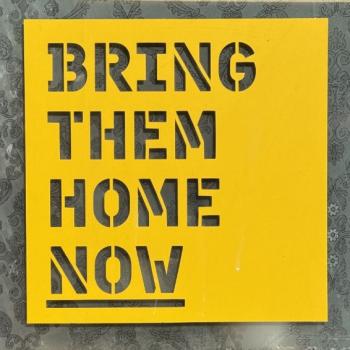A Holy Week conversation about the struggle to do justice: Christians and Muslims have a lot more in common than most of us think, and we’re looking at examples all week. (Monday was “the struggle to love.” Join my mailing list to receive the whole series, hot off the presses.)
Islam reveres Jesus as an important prophet – the Qur’an refers to him as “the Messiah” and “the Word of God” (betcha didn’t know that)!
I recently finished reading a fascinating book called City of Wrong: A Friday in Jerusalem, the “first book written in the Islamic world to make a thorough study of Christianity’s central theme—Christ’s crucifixion—and to show its profound significance for a devout Muslim.” Let’s look at the concept of justice as it plays out in the Passion story in the Qur’an and the Bible.
(Having been married to a Muslim for 35+ years, and having lived in the Middle East for 10 years, I’ve learned a great deal about Islam firsthand. I will share much more in the coming weeks – especially during the Islamic month of Ramadan, which runs from mid-April to mid-May. Subscribe to my newsletter to read all of my Ramadan posts.)
In both faiths, justice is an integral part of God’s character – in fact, in Islam it is one of God’s 99 names. So of course, in both faiths, God desires God’s people to be just.
Micah 6:8 makes it clear: “He has shown you, O mortal, what is good. And what does the Lord require of you? To do justice…” Other translations render the phrase, ‘To act justly.”
The Qur’an says, “O you who have believed, be persistently standing firm in justice” (Surah 4:135).
The Holy Week narratives in both faith traditions demonstrate God’s strong desire for justice.
Most (though not all) Christians believe that Jesus died to pay the price for our sins – or to say it another way, Jesus made a way for humankind to be justified.
Muslims believe that because Jesus was beloved of God (and sinless), he was taken up to heaven before the crucifixion. Someone – possibly Judas – was made to look like Jesus, took Jesus’ place on the cross, and died.
The Muslim version is a fascinating script-flip, describing God’s intervention to make sure justice was done on behalf of the prophet Jesus – after all, Jesus had lived a perfect life, while Judas had betrayed Jesus and deserved punishment. (Islam doesn’t require a substitutionary atonement – all people are responsible for their own deeds.)
Nevertheless, both faiths agree that Jesus did not deserve to be crucified – it was an unjust punishment.
For all the times I’ve read or heard the Passion story, I never saw it the way M. Kamel Hussein described it in City of Wrong.
A group effort
In City of Wrong, Hussein suggests that Jesus was unjustly condemned because the people of Jerusalem had agreed together that it must happen. No one had to take individual blame for the decision. The whole council of the Pharisees agreed to the crucifixion; the whole crowd of people shouted their agreement. It was nobody’s fault and it was everybody’s fault. When the blame is spread thinly enough, we are able to feel relatively blameless.
Hussein says it this way – in words that I think would resonate with both Christians and Muslims:
“Communities readily do the wrong because the individuals composing them share out the weight of guilt and none of them feels personally implicated. Each thinks of his partners as exempting him from implication in that his particular share of responsibility is very slight. He argues too that even if he had not participated it would have happened anyhow.”
We can pretend that we still love our neighbors when our share of the un-loving action is small.
But if I (as a Muslim or a Christian) am only one of millions rejecting refugees, or shrugging shoulders as our country goes to war –do I still love my neighbor as myself? If I am only one of millions complicit in bigotry toward a marginalized group, or turning away from the desperately poor, can I still consider myself obedient to God?
The answer is obvious. We know that God is a God of justice, and we can’t hide from God by blending into a crowd or by making excuses. It’s our job to stand up for the innocent. Christians are familiar with the phrase, “if you did it to the least of these…”
YOU MIGHT BE INTERESTED IN THESE POSTS:
What if I don’t actually “need” my stimulus check?
A view of a theocracy: Saudi Arabia (and the US?)
Gnats, camels, and Christian indifference
FEATURED IMAGE: “Jesus is Just Alright With Me” by Wallflower83 is licensed under CC BY-NC-ND 2.0













